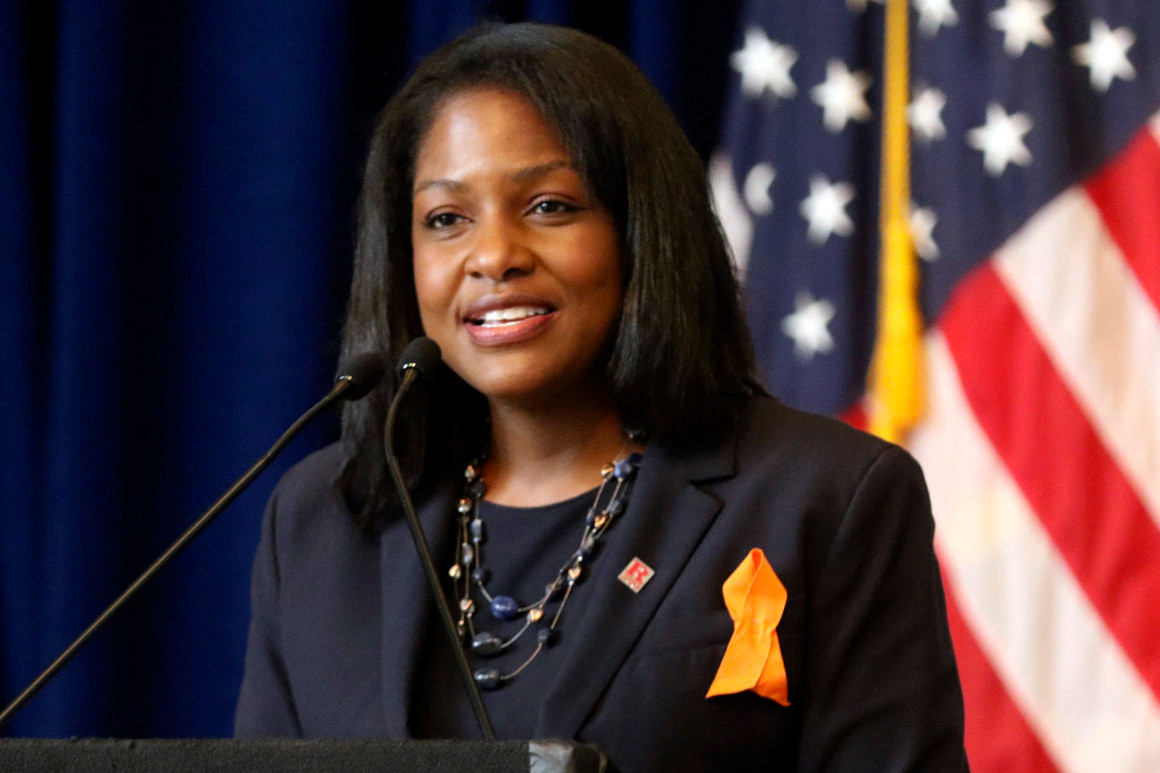Fabiana Pierre-Louis, a current partner in the Cherry Hill office of Montgomery, McCracken, Walker & Rhoads; who broke ground as the first black woman to head two U.S. Attorney’s Office branches in New Jersey; could break ground again as Gov. Phil Murphy’s next nominee to the New Jersey Supreme Court.
Pierre-Louis would replace sitting Associate Justice Walter Timpone, who turns 70 later this year.
As such, If confirmed by the state Senate, Pierre-Louis would be the first black woman to serve on New Jersey’s highest court, and only its third black jurist; and the first in a decade. (In 1994 Associate Justice James Coleman took his seat as the Supreme Court’s first black jurist, serving until 2010).
Therefore, Fabiana Pierre-Louis would join Chief Justice Stuart Rabner; and Associate Justices Jaynee LaVecchia, Barry Albin, Anne Patterson, Faustino Fernandez-Vina and Lee Solomon.
At age 39, Murphy said Pierre-Louis has the potential to serve the state for a generation.
The judiciary had no comment on the nomination.
Fabiana Pierre-Louis Nomination Came As A Surprise
The announcement, which was made on Friday by the Governor’s Office, additionally brings to fruition rumors that circulated most of last year that Murphy was poised to pick the first black woman to serve as a justice on the state’s highest court a year before his first term as governor ended.
Fabiana Pierre-Louis’ nomination also came as somewhat of a surprise to political observers since she wasn’t on Murphy’s short list that was circulated in media reports last year. That short list included; Elise Boddie, a law professor at Rutgers-Newark; Greta Gooden Brown, a Superior Court judge and former appellate court judge; and Norma Evans, a career prosecutor and president-elect of the Association of Black Women Lawyers of New Jersey, among others.
Fabiana Pierre-Louis’ nomination comes amid a week of racial turbulence throughout the country over the death of George Floyd; an African American, in the custody of a white police officer in Minneapolis on Memorial Day. Video of Floyd’s arrest has spurred protests for racial justice in several major U.S. cities, some peaceful, others not; for example, where looting of storefronts, like those in Center City Philadelphia, led to clashes with police during a pandemic now going on three months.

